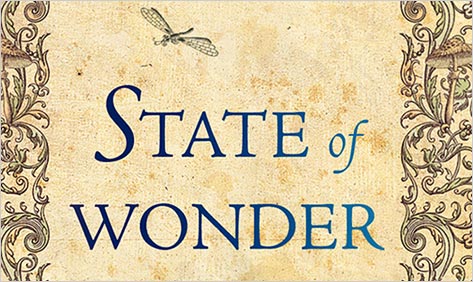State of Wonder

If the greatest compliment you can give an author is to ask if her book is “really true,” then our digital era’s version may be to skip the author entirely and go straight to Google to separate fact from fiction. It’s this overpowering impulse that will strike all but the most incurious reader of State of Wonder, Ann Patchett’s eighth book and sixth novel, a nearly pointillist creation about a mighty pharmaceutical company, a band of zealous scientists, and an untouched-by-time tribe in the Amazon Basin holding onto a medical secret that could change the world.
Patchett has always been as wickedly specific about the vicissitudes of human relations as she is about the fields she covers (see Bel Canto for the life of the soprano; Taft for bartending), but in State of Wonder, the jungle-like profusion of red herrings, dry data, and wry wit allows an especially improbable gang of characters—mad scientists go to Amazon, eat the locals’ magic bark, hilarity ensues—to live and breathe, its own literary ecosystem. It’s difficult enough to create mysterious natives without getting into Ewok territory, but virtuoso Patchett keeps ludicrousness at bay. She unfolds the story of a difficult romance, meditates on motherhood, and considers the effects of pharmaceuticals on society—all with a bunch of ululating tribespeople waving fiery torches ten feet away.
When we first meet Dr. Marina Singh, she is living a life of quiet incompletion. After a surgical error as a young obstetrician, she’s left the field to work at a Big Pharma outfit called Vogel, where she is having a secret affair with the far-older CEO, Mr. Fox, who even Marina can’t bring herself to call by his first name. Childless, without siblings, and with no parents to attend to, the 40-ish Singh is bemused not by her life’s improbable direction but rather by her sense that it lacks one entirely.
All of this changes when close colleague Anders Eckman perishes of fever on a trip to the Amazon. It’s a trip he took to chase down Dr. Annick Swenson, a brilliant former teacher of Marina’s who has been “developing,” without any visible progress, a drug for Vogel for twenty years. The news of Anders’s death is conveyed by the enigmatic Dr. Swenson herself, in a terse blue letter that, Marina notes, nonetheless manages to mention the weather twice.
But now the emptiness of Marina’s life, like the emptiness of the Minnesota plains she loves, is apparently to her advantage. Eckman’s wife, Karen, begs Marina to follow Anders’s path to find out how he died—or if he even is truly dead—because she can’t leave their three boys. Mr. Fox pleads with her to seek out Dr. Swenson’s jungle lab, in hopes that Swenson will trust her former student. Consumed with guilt for Karen, resenting Mr. Fox’s willingness to sacrifice her, Marina goes anyway—finding even that Dr. Swenson, whom she locates with great difficulty, also considers her the best candidate for the mission. “This is a business for old maids,” she tells Marina, as they pontoon down the river toward Swenson’s jungle home. “I don’t say that derogatorily, being one myself.”
Further into the story no reviewer could go without engaging in a series of unforgivable spoilers. Yet it should spoil nothing to note how Patchett specializes in orphans, those born fish out of water. Marina, half-Indian, half-white, has always been mistaken for everything but the midwesterner she is. But when she goes to Brazil, the author does not involve her in the tedious act of conquering her alienation. After a few weeks in-country, a tourist mistakes Marina for a member of the tribe—”She’s twice as tall as the others!”—and the doctor poses affably for a picture. She’s beyond feeling cast out. She’s flopped out of one lonely pond straight into the Amazon, and suffered a sea change that helps her finally understand what she isn’t.
The title “State of Wonder” does not exactly describe Marina’s on her journey into the truth about Eckman’s death, the nature of Swenson’s miracle drug, and the heart of the Amazon Basin. (“State of Terror” or “State of Hapless Stoicism, with Flashes of Humor” might do it.) But it does describe the state in which the novel leaves the reader. We’re safe to ooh and ah at each plot twist like an eco-tourist on a boat on a murky, tree-lined river, Patchett’s fantastical creatures enduring long past our wake.